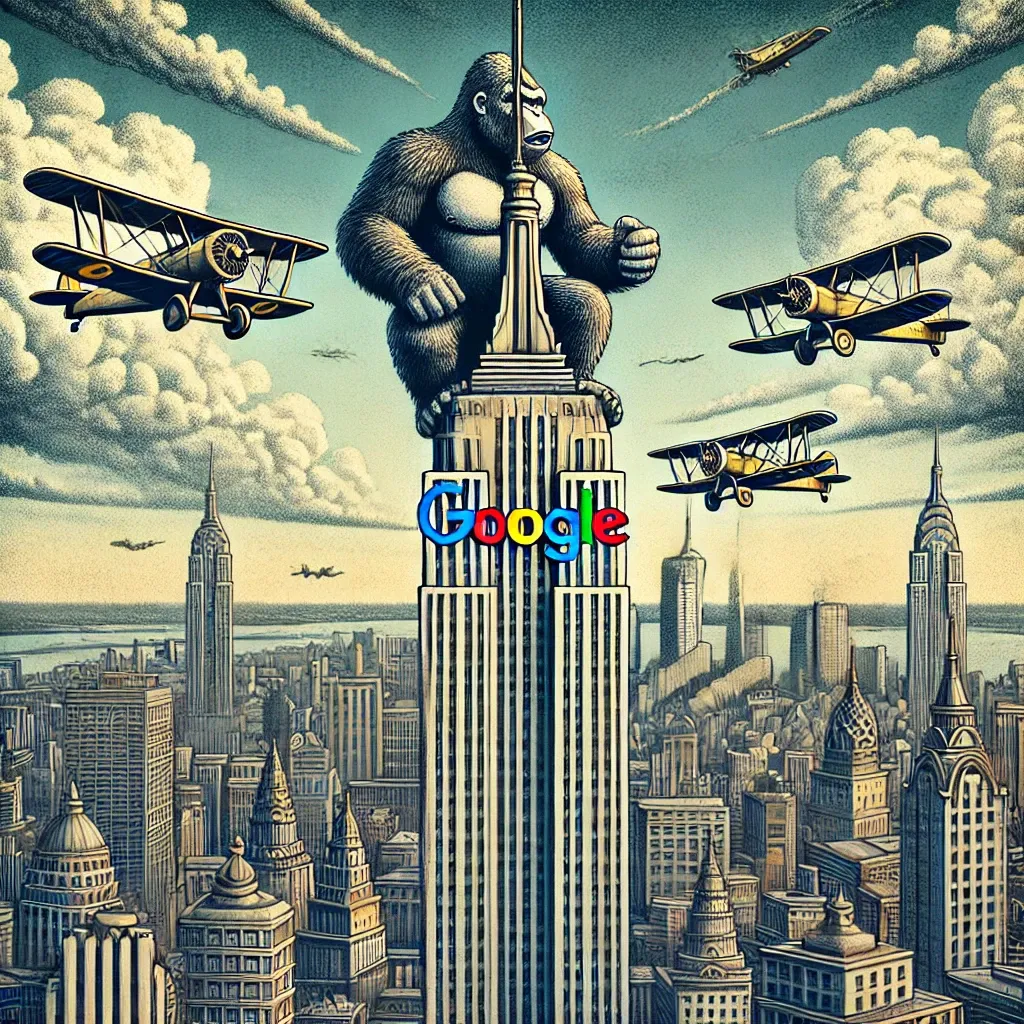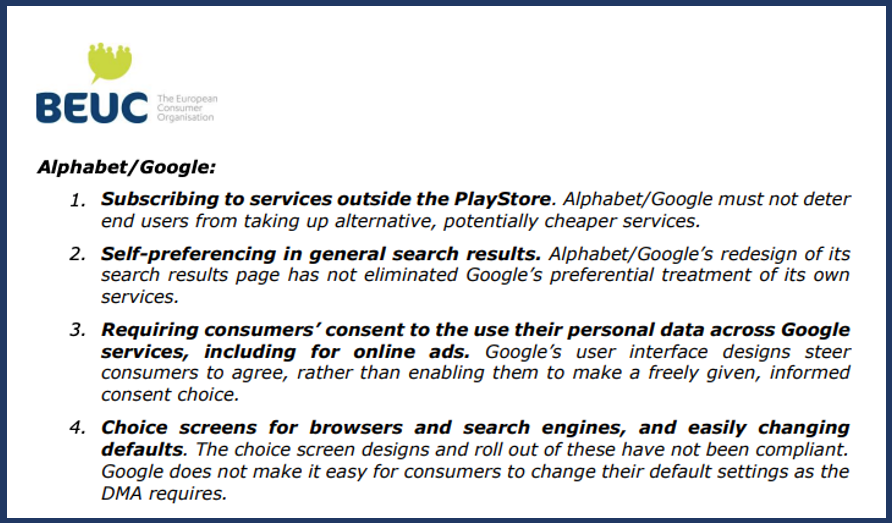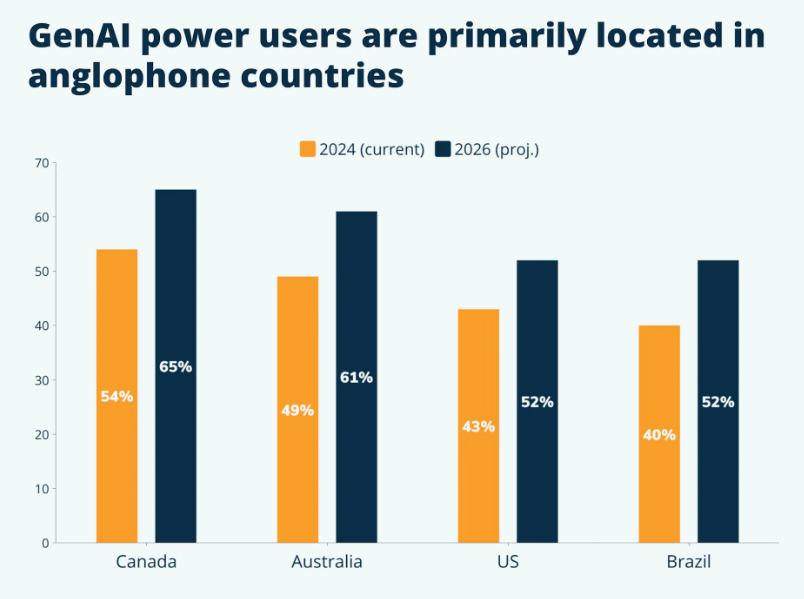Branding & SEO, Google Non-Compliant, AI Eating Social

Brand Building Critical for SEO
Since the revelations from the Google antitrust trial and Search API leak, there's been renewed interest among search marketers in branding – for several reasons, among them that brands get clicks. A couple of weeks ago, we had a very interesting Near Media podcast discussion about branding and search with Wix's Mordy Oberstein. As part of that we talked about brand building in local where there often aren't recognized brands. Boosting trust and reliability signals online, offline community engagement, delivering superior customer experiences and, of course, creating a strong reputation are paths to local brand building. People are going to choose recognized brands over lesser known options. Indeed, most sites or content publishers with weak brands are reduced to "commodity" information providers. Since day one, the Google SERP has always "flattened" and commoditized content; AIOs are the latest threat. And even though SERPs today have more branding elements (e.g., logos, images), brand building is one of the only defenses against what might be called the capriciousness of the algorithm. People search directly for brands or quickly choose them, as we've seen in Near Media user testing. Without a brand you're fighting for attention, every single query, in the purgatory below the fold.

Our take:
- Gone are the days when you can reliably build a brand via organic search. Brands must now be built off Google, mostly offline and on social media.
- Companies often sacrifice brand budgets for performance marketing, to meet quarterly quotas and KPIs. But you can't neglect branding any more.
- Rand Fishkin and Mike King are both strong advocates of building brands to improve search visibility, including in local.
Report: All DMA Gatekeepers Non-Compliant
The BEUC (The European Consumer Organisation) has issued a report that finds all of the designated "gatekeepers" under the EU Digital Markets Act (DMA) are non-compliant in one form or another. The six gatekeepers are: Amazon, Apple, ByteDance, Google, Meta and Microsoft. Broadly, the DMA focuses on consumer choice and consent and seeks to prevent self-preferencing and other practices that keep consumers on gatekeeper platforms and block competitors. BEUC is a non-profit, non-governmental organization. The report will be influential and receive coverage but it has no immediate impact. Among other alleged violations, Meta, Amazon, ByteDance (TikTok) and Microsoft were all faulted for manipulating users (dark patterns) into giving consent to data sharing. Apple was criticized for App Store-related practices. Google is also criticized for steering users into sharing their personal data. Of interest to us, the report says that Google's SERP "redesign of its search results page has not eliminated Google’s preferential treatment of its own services." Our user testing in Europe would generally support that conclusion.

Our take:
- Many of Google's structured SERP features will qualify as self-preferencing under the DMA; Google does not want to change them.
- Local is going to be a key battleground; Google is trying to define local as an element of "core search" and exempt it from DMA compliance.
- Apple, Google and Meta are currently under DMA investigation. No fines have yet been imposed. Penalties can be 10% of global revenue (billions).
Flooding Social with AI Content
Content creation is one of the top AI use cases and social media content is probably leading in that context, ahead of email marketing, website copy, blog posts, ad copy and landing pages. In addition, reputation management platforms now generally incorporate review responding via AI tools. AI is thus already well established in the social media world (including for disinformation). So it comes as no surprise that a global Capterra survey from earlier this summer predicts that roughly half of social media content will be AI-generated in two years. But the numbers are even higher in many English language countries (see graphic). Efficiency and productivity are cited as the primary benefits of AI in the survey. But there are also concerns, including maintaining authenticity (43%), maintaining the value of human creativity (40%), ensuring content resonates (35%). Google is adapting to increasing AI generated content with various strategies, including elevating quality standards and indexing fewer pages. AI content in social isn't subject to Google's quality standards but it will eventually impact Google.

Our take:
- In the next decade it will probably be true that a majority of online content is at least partly AI generated – not just social media.
- It's not entirely clear how audiences will react when much or most of what they see online is touched by AI. There are indications people won't like it.
- A flood of AI content across the web will make general search engines such as Google less useful and less trustworthy. Google is well aware.
Recent Analysis
- Near Memo episode 172: LSAs get more GBP features, Google Maps gets a cleanup, Yelp sues Google for antitrust violations.
Short Takes
- What ranking on Google requires today (including local).
- German example: only hotels with "connectivity partner" clickable.
- Clarifying the relationship between AIOs and top organic results.
- Top 20 domains appearing in Google Top Stories module.
- Google Core Update poll: largest group (44%) said rankings down.
- Semrush expands Google AI Overview tracking capability.
- Google testing new shopping search UI design.
- How to use Google's new Gemini Gems for SEO.
- Google adding more controls against AI misinformation.
- Google indexing fewer pages: focus on quality not quantity.
- Alibaba says its AI can analyze 20+ minute videos and understand them.
Note: the newsletter will not publish on Thursday.
Listen to our latest podcast.

How can we make this better? Email us with suggestions and recommendations.

